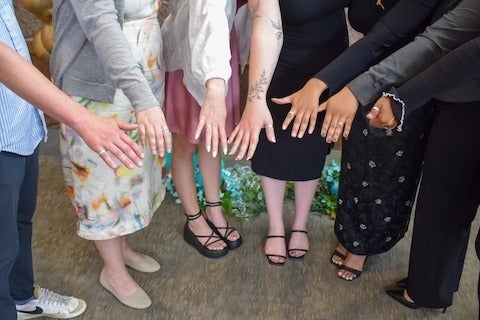Education for a Sustainable Tomorrow
The School of Environment, Enterprise and Development (SEED) is unique in Canada, and possibly the world, in its focus on the intersection of environment and sustainability, on one hand, and business and development on the other. With programs in sustainability management, international development practice, environment and business, local economic development and social innovation, SEED is dedicated to developing the knowledge, tools and expertise to integrate business and development with environmental and social goals. Learn more about SEED!
News
International Development Ring Ceremony
by Rebecca Wagner, Director of External Relations at United College
It was an awarding of rings to mark one of life’s most significant transitions and a coming together of a small cohort of graduates for an intimate final send-off.
A leap of faith: From Ghana to Medicine Hat
On a rainy Saturday in May, a new resident arrived in our city, exiting a plane from our local Airport to set her feet on Medicine Hat soil for the first time. With just four suitcases in hand Tracy Tawiah, our new Rural Renewal Program Coordinator, was filled with excitement, ready to start her new career, and life, in Canada’s sunniest city.
US Tech Sector savings plans holders could have been $5.13 billion richer
A new report by Michael Zonta, PhD candidate in the School of Environment, Enterprise and Development, shows the benefits of divesting from fossil fuels provide environmental and financial benefits.



